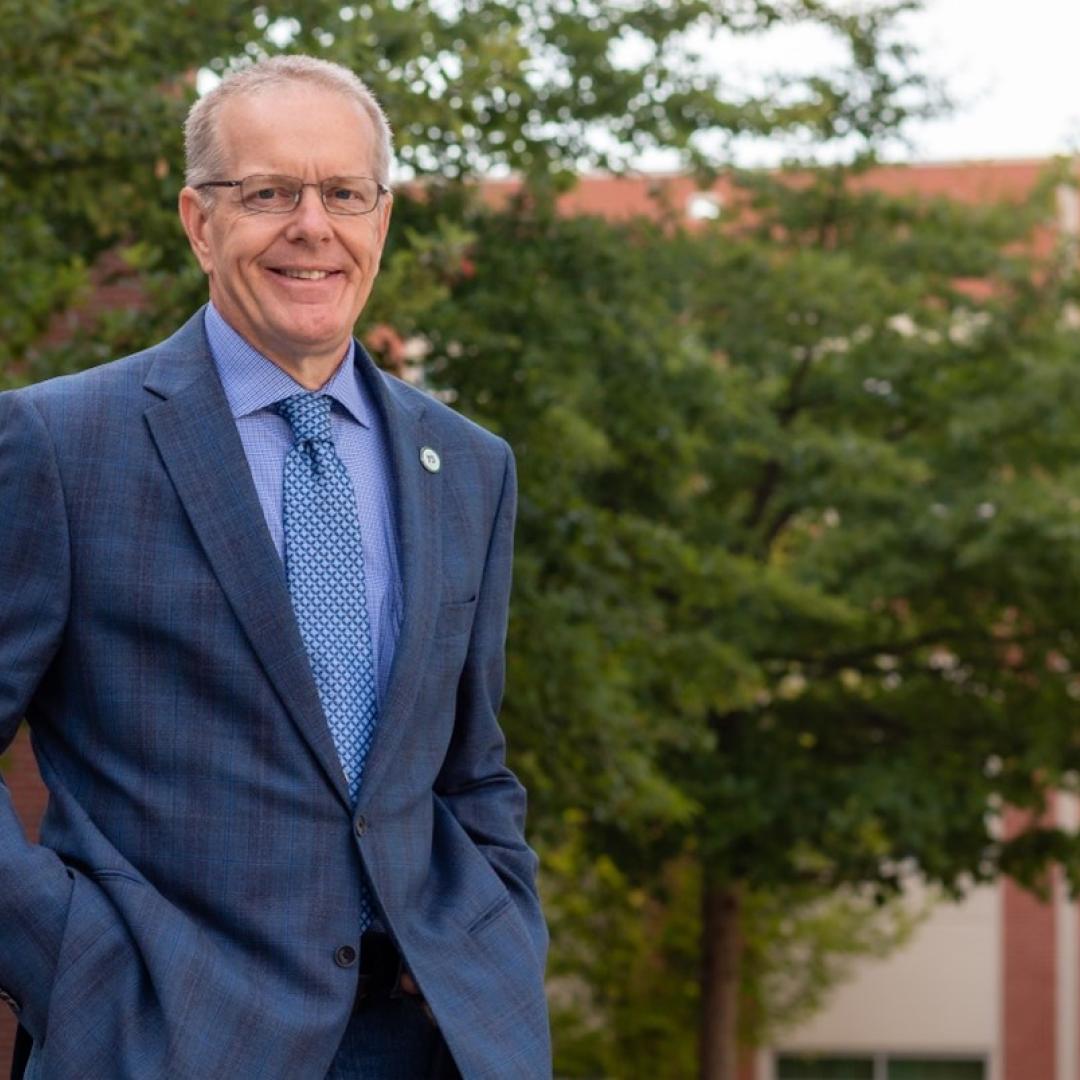
Filter News
Area of Research
- (-) Biology and Environment (19)
- (-) Materials (7)
- Biology and Soft Matter (1)
- Clean Energy (33)
- Electricity and Smart Grid (1)
- Functional Materials for Energy (1)
- Fusion and Fission (2)
- Materials for Computing (1)
- National Security (2)
- Neutron Science (2)
- Nuclear Science and Technology (1)
- Supercomputing (5)
- Transportation Systems (1)
News Topics
- (-) Decarbonization (25)
- 3-D Printing/Advanced Manufacturing (27)
- Advanced Reactors (4)
- Artificial Intelligence (15)
- Big Data (10)
- Bioenergy (51)
- Biology (73)
- Biomedical (20)
- Biotechnology (13)
- Buildings (5)
- Chemical Sciences (35)
- Clean Water (14)
- Climate Change (43)
- Composites (11)
- Computer Science (34)
- Coronavirus (14)
- Critical Materials (13)
- Cybersecurity (5)
- Energy Storage (37)
- Environment (100)
- Exascale Computing (6)
- Frontier (6)
- Fusion (8)
- Grid (8)
- High-Performance Computing (24)
- Hydropower (8)
- Irradiation (1)
- Isotopes (13)
- ITER (1)
- Machine Learning (11)
- Materials (78)
- Materials Science (82)
- Mathematics (3)
- Mercury (7)
- Microscopy (34)
- Molten Salt (3)
- Nanotechnology (42)
- National Security (5)
- Net Zero (3)
- Neutron Science (36)
- Nuclear Energy (16)
- Partnerships (12)
- Physics (30)
- Polymers (18)
- Quantum Computing (3)
- Quantum Science (11)
- Renewable Energy (2)
- Security (3)
- Simulation (15)
- Space Exploration (2)
- Summit (11)
- Sustainable Energy (42)
- Transformational Challenge Reactor (3)
- Transportation (15)
Media Contacts
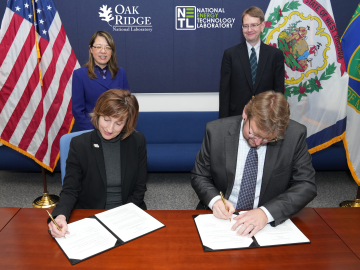
ORNL is teaming with the National Energy Technology Laboratory to jointly explore a range of technology innovations for carbon management and strategies for economic development and sustainable energy transitions in the Appalachian region.
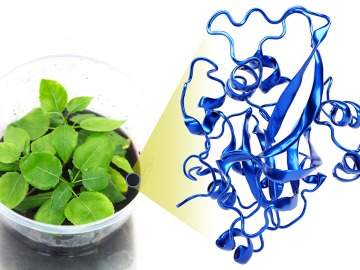
ORNL researchers have identified specific proteins and amino acids that could control bioenergy plants’ ability to identify beneficial microbes that can enhance plant growth and storage of carbon in soils.
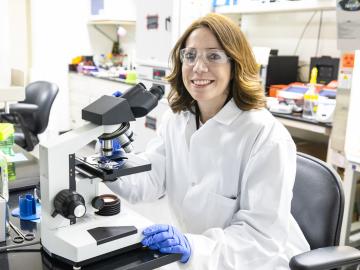
Joanna Tannous has found the perfect organism to study to satisfy her deeply curious nature, her skills in biochemistry and genetics, and a drive to create solutions for a better world. The organism is a poorly understood life form that greatly influences its environment and is unique enough to deserve its own biological kingdom: fungi.

Oak Ridge National Laboratory scientists designed a recyclable polymer for carbon-fiber composites to enable circular manufacturing of parts that boost energy efficiency in automotive, wind power and aerospace applications.
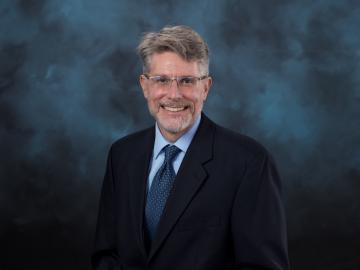
ORNL appointed Peter Thornton as director of its Climate Change Science Institute, or CCSI, effective November 1, 2022.
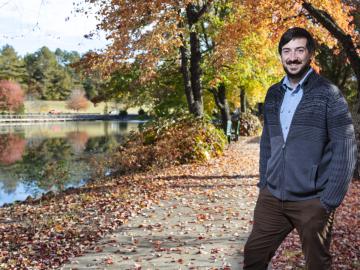
Matthew Craig grew up eagerly exploring the forest patches and knee-high waterfalls just beyond his backyard in central Illinois’ corn belt. Today, that natural curiosity and the expertise he’s cultivated in biogeochemistry and ecology are focused on how carbon cycles in and out of soils, a process that can have tremendous impact on the Earth’s climate.
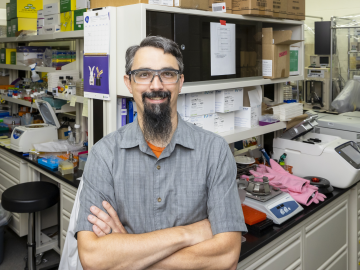
Scientists working on a solution for plastic waste have developed a two-step chemical and biological process to break down and upcycle mixed plastics into valuable bioproducts.
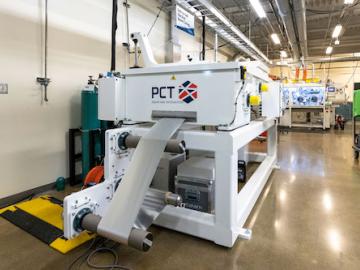
Researchers at the Department of Energy’s Oak Ridge National Laboratory and their technologies have received seven 2022 R&D 100 Awards, plus special recognition for a battery-related green technology product.
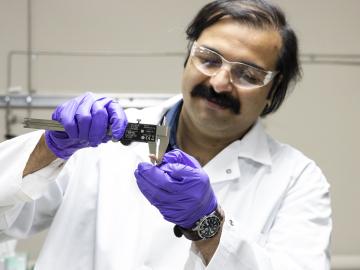
Chemical and environmental engineer Samarthya Bhagia is focused on achieving carbon neutrality and a circular economy by designing new plant-based materials for a range of applications from energy storage devices and sensors to environmentally friendly bioplastics.
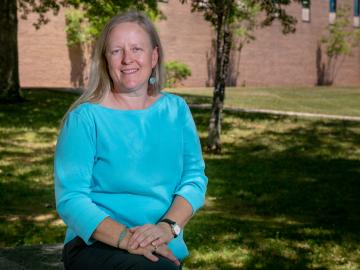
Science has taken Melanie Mayes from Tennessee to the tropics, studying some of the most important ecosystems in the world.


